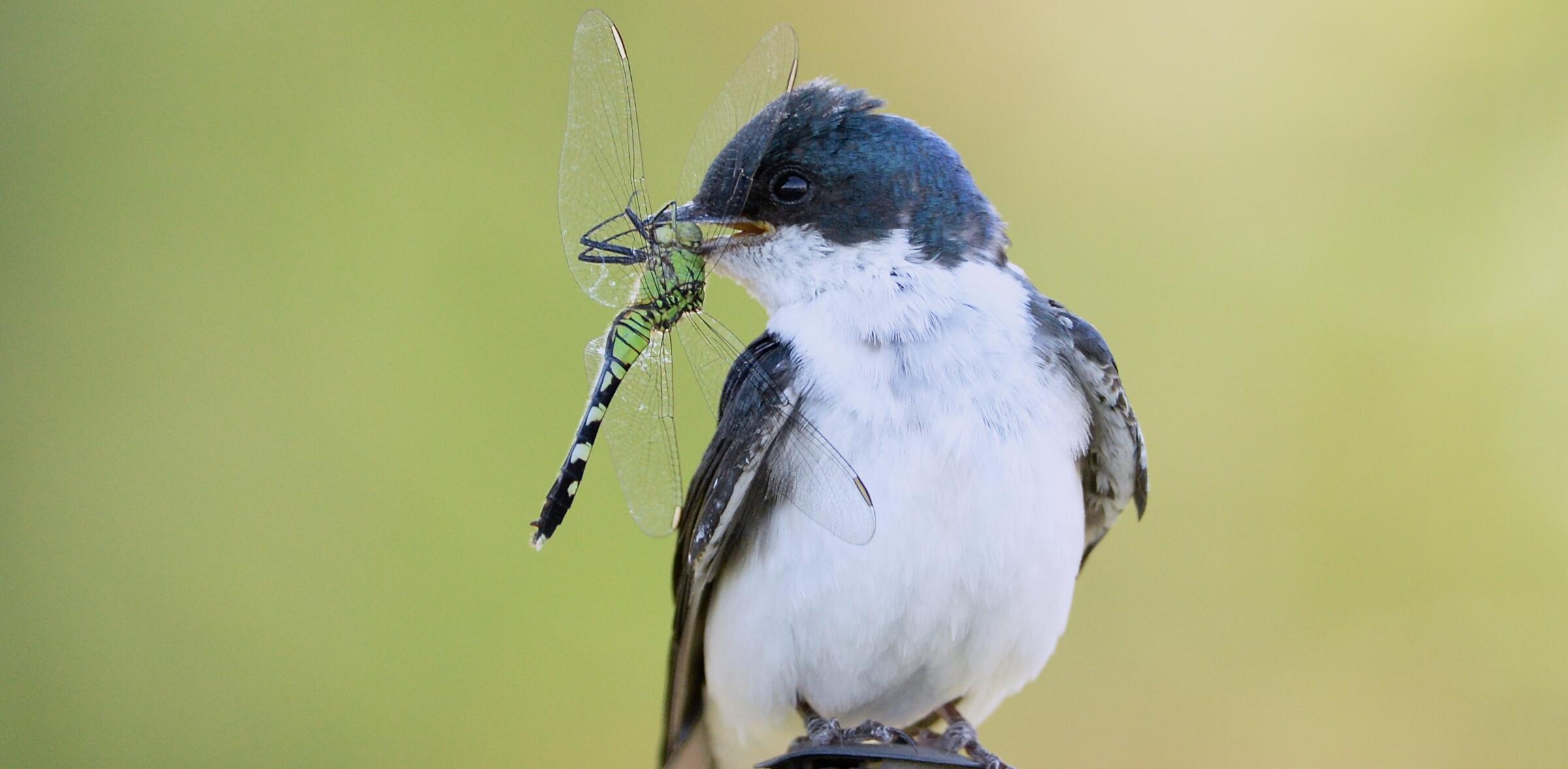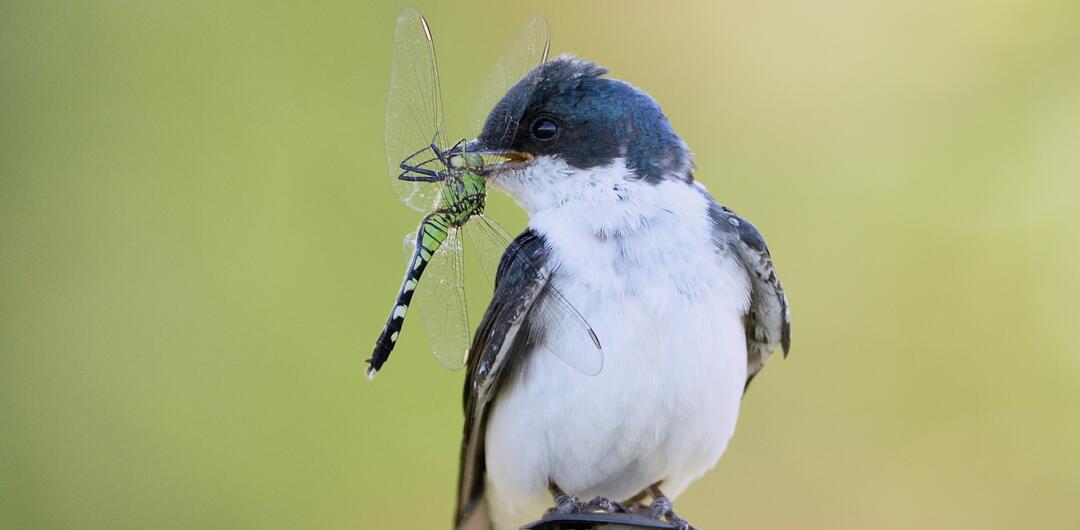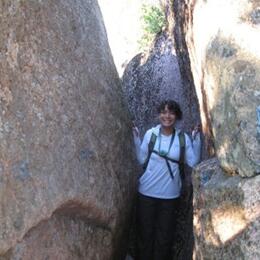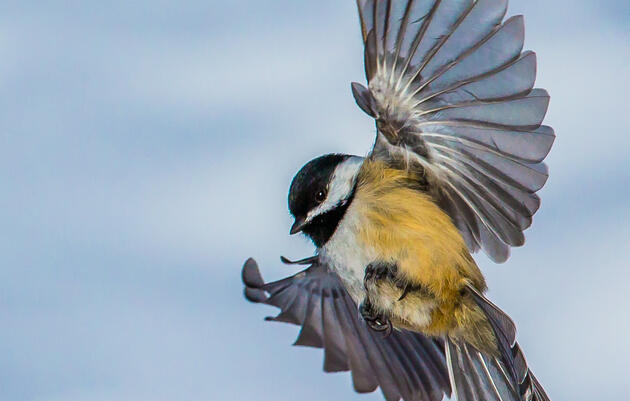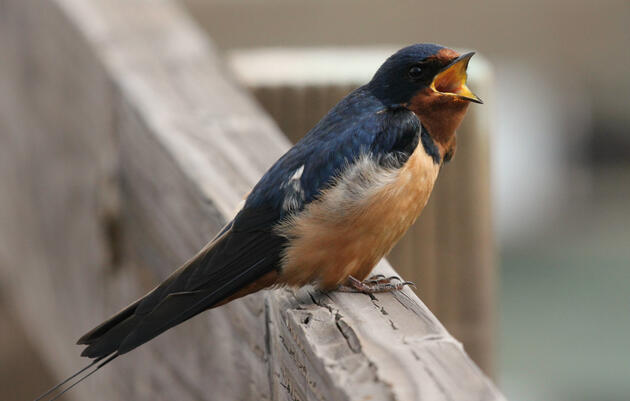Act 182, or typically known as the “Neonic Bill,” was passed in Vermont during the 2024 legislative session. This Act bans and restricts certain uses, sales, and distributions of the toxic pesticide, neonicotinoids, for agricultural and non-agricultural purposes. The act includes banning both neonic-treated seeds and restricting outdoor application of neonic-pesticides. Neonics directly impact pollinators, birds, and other non-target species. Audubon Vermont is a strong supporter of this bill and assisted in its passing as part of the Protect Our Pollinators Vermont (POPVT) coalition. With only a handful of states passing restrictive neonic laws, how are other regions responding to their bans?
New York
New York was the first U.S. state to pass a restriction on neonics and to limit/restrict/prevent the sale of neonic-treated seeds. New York’s “Birds and Bees Protection Act” prohibits the sale and use of certain pesticides and requires the Commissioner of Environmental Conservation to report on the use of these pesticides. It also requires the NY Department of Environmental Conservation (NY DEC) to think about ways to develop strategies to promote pollinator-friendly land. Additionally, the act requires the NY DEC to share information on protecting migratory birds. There are exemptions in place for neonic use, such as environmental emergencies, and in situations where less harmful pest management practices wouldn’t be effective. If this occurs, farmers need to present an evaluation and undergo integrated pest management training (BioNews Staff, 2024).
The bill was later amended to push back the implementation of the neonic restrictions to 2029, a two-year extension from the original bill. The amendment goal was to allow time to explore and research alternatives before implementation. With the implementation date extended, we are now waiting to see the impact of the New York bill and the results of the research being conducted. 2028 seed purchases will be the first to be impacted by the bill (BioNews Staff, 2024).
Quebec
In 2019, Vermont’s close neighbor, Quebec, banned neonics (including seeds coated in neonics) unless prescribed by an agronomist. The Ministry of Environment (MELCCFP) gave forty presentations and training sessions to inform and support farmers and agronomists to make the transition away from neonic-treated seeds. Additionally, in 2020, the Order of Agronomists (OAQ) released guidelines for agronomists when making decisions on whether to recommend insecticide-coated seeds. The OAQ and MELCCFP work to monitor agronomist justification (Regulations of Neonic-Coated Seeds in Quebec, 2024).
After the neonic ban was enacted, pesticide companies pushed back and developed a new seed-coating insecticide; instead of covering their seeds with neonics, they would instead cover them with diamides, which are particularly deadly to aquatic organisms (Regulation of Neonicotinoid-Coated Seeds in Quebec, 2024). As a result, Quebec further tightened their pesticide laws. Starting on August 1, 2025, an agronomic justification will be required prior to planting seeds of certain crops that are coated in insecticides except for biopesticides (Understanding Agronomic Justification and Prescription, 2025). This new regulation will align with the 2026 seed-buying season.
In 2023, the Vermont Legislature heard testimony from Quebec farmers transitioning away from using neonics. In that testimony, those testifying stated that 0.5% of corn acreage in Quebec now contains neonics (Robert, 2023). Thus, it appears as though most farmers have been able to transition away from neonics and are not relying on exemptions. While they stated that there was a big concern over crop yield drop after these pesticide regulations came out, farmers testified that they did not see a change in yield (Managing Neonic Row Crop, 2023).
Overall, Quebec appears to be responding well to the neonic restrictions and has provided necessary tools for those affected by the transition. These results leave us optimistic that the transitions in New York and Vermont will proceed smoothly, without some of the anticipated negative outcomes such as reduced yield.
Public Involvement & Action by Vermonters
The first stages of Vermont’s bill took effect in 2025. The Vermont Agency of Agriculture published their draft best management practices (BMPs) for the exempted use of neonics in July 2025.
Audubon Vermont and its partners encouraged Vermonters to review and share feedback on the proposed BMPs through online comments and at public hearing opportunities. Nearly 400 Vermonters submitted comments through Audubon's online Action Alert, and Audubon Vermont submitted formal written comments to the Agency. The deadline for submitting comments was September 11, 2025. We expect the Agency to share any changes to the BMPs sometime later in the fall of 2025.
Learn more about how Audubon Vermont has been involved in this policy and how it relates to our work, on our Bird and Bee Friendly Farming webpage.

